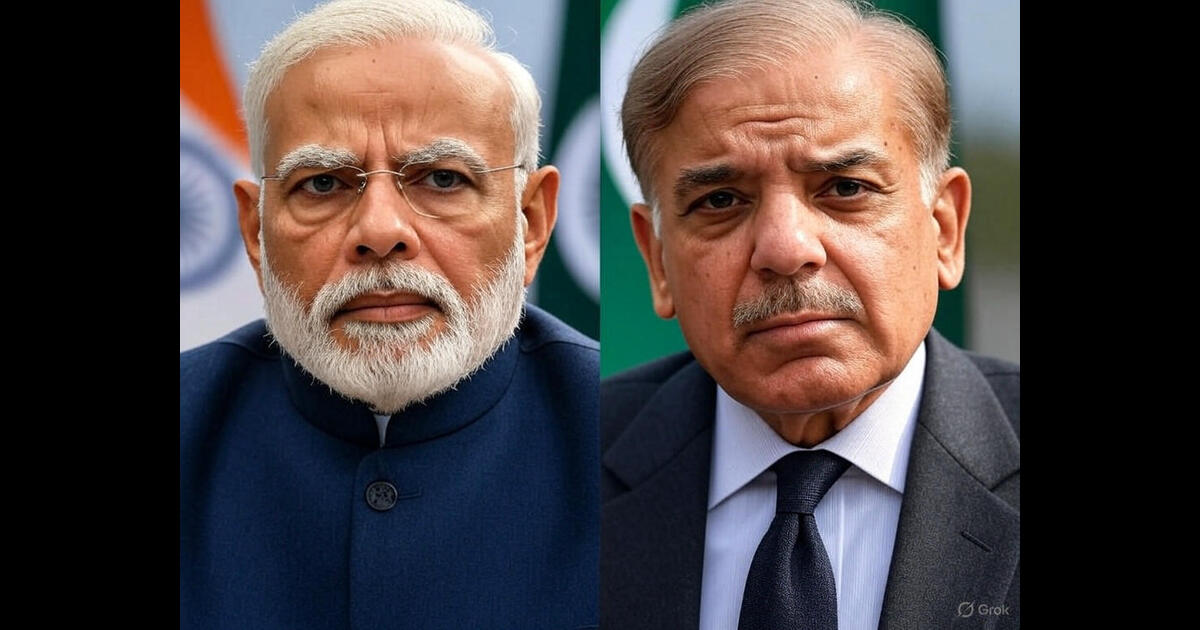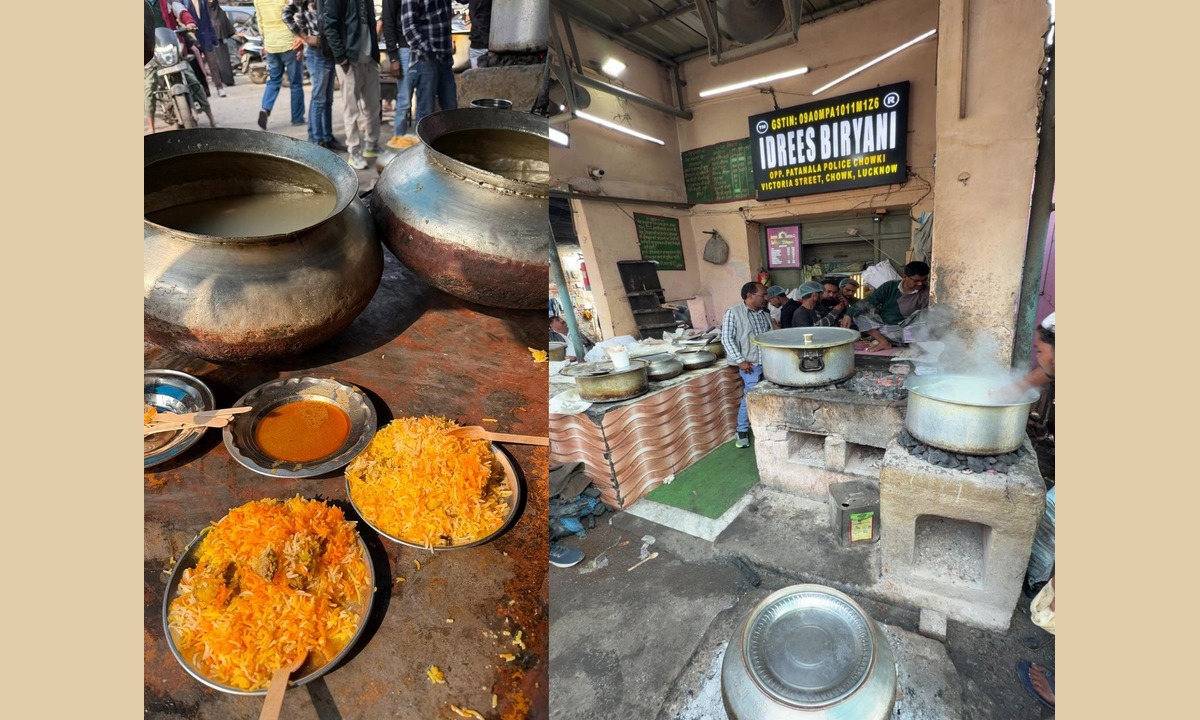
Pahalgam terror strike: India’s reply to Pakistan should be halal, not jhatka
Russian President Vladimir Putin may or may not have called Pakistan a “cemetery”, but it’s time for Bharat to put the final nail in the coffin.
An artificial entity called Pakistan — created as the outcome of a geopolitical tragedy — has no history and certainly no future. The only thing it brings to the table is its nuisance value — a country for the Army, of the Army, and by the Army.
Their economy is in the doldrums, and the only things keeping them afloat are IMF bailouts and loans from a handful of friendly nations. Internal frictions are more evident than ever before -- Pashtuns want autonomy, Balochs want freedom, Sindhis are up in arms, and even the Khyber Pakhtunkhwa belt is unhappy. The Pakistani Army -- overwhelmingly comprised of Punjabi Muslims -- has already lost control of several areas and highways in several regions of the country.
To cut the long story short, they are already on their knees — and if India manages to kick them further down, South Asia will usher in a much more peaceful and prosperous era.
However, a few surgical strikes to pacify the angst among Indians cannot be our answer to the dastardly Pahalgam attack. Such attacks have taken place in the past -- this wasn’t the first time, and it won’t be the last if we don't break their spirits. If we keep avoiding biting the bullet, even our next generation will exhaust itself fighting cross-border terrorism.
Pahalgam terror attack: How should India respond?
At a time when every second Indian seems to be an expert on security and geopolitics, it may be presumptuous to share a military strategy, but we can surely participate in the debate over the approach we ought to take.
First things first: the long-term goal should be the segregation of Pakistan into as many smaller countries as we can carve out of the pariah nation. As our objective is ambitious, our offensive approach cannot be erratic. We need to play the long game.
The response must be multi-pronged. It’s time to break them financially, militarily, socially, and in every other conceivable way. It’s a welcome move to finally put the Indus Waters Treaty in abeyance, especially given their dependence on river waters. OIC nations can help them with funds and weapons, but no one can help with water. Of course, it’s going to be a long-drawn battle, but the government on our side -- irrespective of the political party in power -- must continue building water storage infrastructure along the India–Pakistan border to ensure that not a drop flows to the Pakistani side. We must not lose the momentum.
Yes, their civilian population will suffer due to the water crisis -- but better them than us. It’s impractical to think we can punish the Pakistani Army without making life difficult for their civilians. Actions must have consequences -- and at the risk of sounding insensitive, Pakistani civilians are just an unavoidable collateral in this war.
The only goal of their existence is to delete Bharat from the world map -- and they have tried everything to achieve this devilish aim: from war to insurgency, from infiltration to bleeding us by a thousand cuts. So, after several years of back-stabbing, it’s safe to say that anyone who believes a stable Pakistan is good for India’s progress is delusional at best, diabolical at worst. Their own Army General has stated: “We are different, we can never be the same.” And probably for the first time, Indians should completely agree with Asim Munir.
Therefore, it’s time to respond in a language they understand. We ought to openly support Baloch activists who are fighting a rightful battle for their land. Their resources are being exploited for the benefit of the Punjabi population, while the Baloch people remain impoverished. China, too, is using their natural wealth, yet no benefits are passed on to the local populace. In fact, those who protest are picked up by the Pakistani Army, tortured, killed, and often dumped by the roadside. These cases have increased to such an extent that women and children are forced to protest in the streets against disappearances. In 2016, Prime Minister Narendra Modi spoke about Balochistan in his Independence Day speech — it’s now time to walk the talk. As NSA Ajit Doval said: “You do another 26/11, you will lose Balochistan.”
Similarly, we must fund Afghanis fighting for a Pashtun land. We should also fan the Durand Line disagreement between the Afghan and Pakistani governments, ensuring that our Afghani brothers emerge victorious.
On the financial front, we must ensure that Pakistan remains perpetually on the FATF list. We must also work to halt -- or at least delay -- their IMF bailouts. We should rally our allies in the West to ensure they provide no logistical or military support (not even in the name of maintenance) to Pakistan. We must also leverage our relations with Gulf nations to prevent them from offering loans to Pakistan. Simultaneously, we should continue isolating Pakistan on the international stage.
For too long, India has taken pride in the principle of non-interference in the internal politics of other nations — but now, we must reconsider. Let’s ensure that Pakistan remains politically polarised. A divided society benefits India. Fortunately for us, former Pakistan Prime Minister Imran Khan has already discredited the Army establishment. We must keep that anger alive and ensure that the average Pakistani recognises how their Army has ruined them while amassing wealth and investing it abroad.
India must push Pakistan to such a brink that every news story emerging from it shows images of fire, death, destruction, and oppression. While Israel crushed Palestine decisively, the IDF wasn’t particularly effective at managing optics. We mustn’t make the same mistake. This won’t be just a ground war -- it must also be won online. No major sympathetic voices should emerge in Pakistan’s favour, and if they do, we must respond effectively with facts.
Awadh 360 Plus: Cold calculus, not hot blood
Yes, there are many thoughts in the air and several options on the table -- kinetic action to send a muscular message, or punishment through posturing -- keeping the enemy guessing about when (and if) we will strike. But the fundamental aim should be to squeeze them completely, once and for all.
Yes, we will not emerge unscathed. But as citizens, we must be prepared to bear the cost of this war. Also, we must all be ready to confront the enemies within, while our Army eliminates the enemy across the border.
At this moment, there’s a great deal of anxiety. We’ve all come across social media posts asking: when will the war begin? When will India act? Well, the war has already begun -- we’ve closed the taps by putting the Indus Waters Treaty in abeyance. This is classic siege warfare -- as in ancient times when armies surrounded a fort (or city) and cut off access to every essential supply. Before we break the enemy physically, we must first break the enemy from within. To reiterate, it’s a long game -- there’s no need to rush. And as the saying goes: “Revenge is a dish best served cold.”
🚨 PM Modi on Indus Water Treaty SUSPENSION — "India’s water will now FLOW for India, STOP for India, and be USED only for India." pic.twitter.com/FGiijNwgvN
— Megh Updates 🚨™ (@MeghUpdates) May 6, 2025
Popular Categories
Read More Articles
Travel and Tourism
Travel to Thailand gets costlier: International passenger service fee to jump 53% from June by Awadh 360° Desk February 22, 2026Travel and Tourism
Thailand Extends Visa-Free Stay for Indians to 60 Days, Allows 30-Day Extension by Awadh 360° Desk February 19, 2026Travel and Tourism
Lucknow or Zaike: A City Remembered Through Taste by Mohammed Syed Zaid February 11, 2026Business
What's Up With WhatsApp? by Prateek Shukla February 9, 2026



